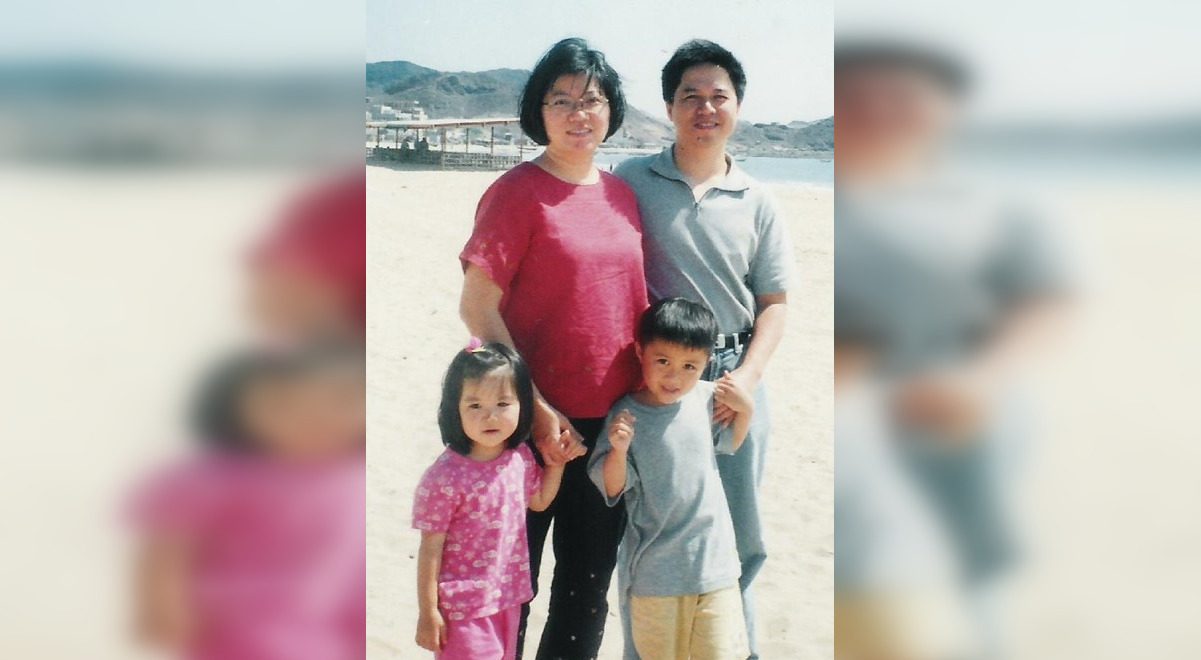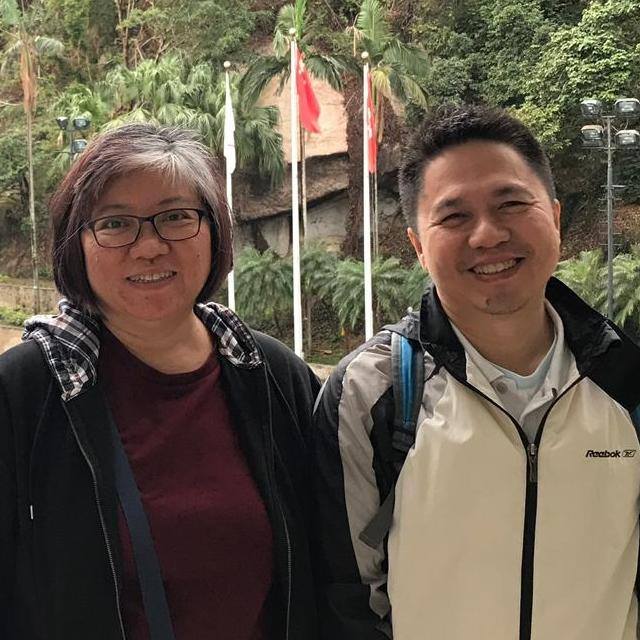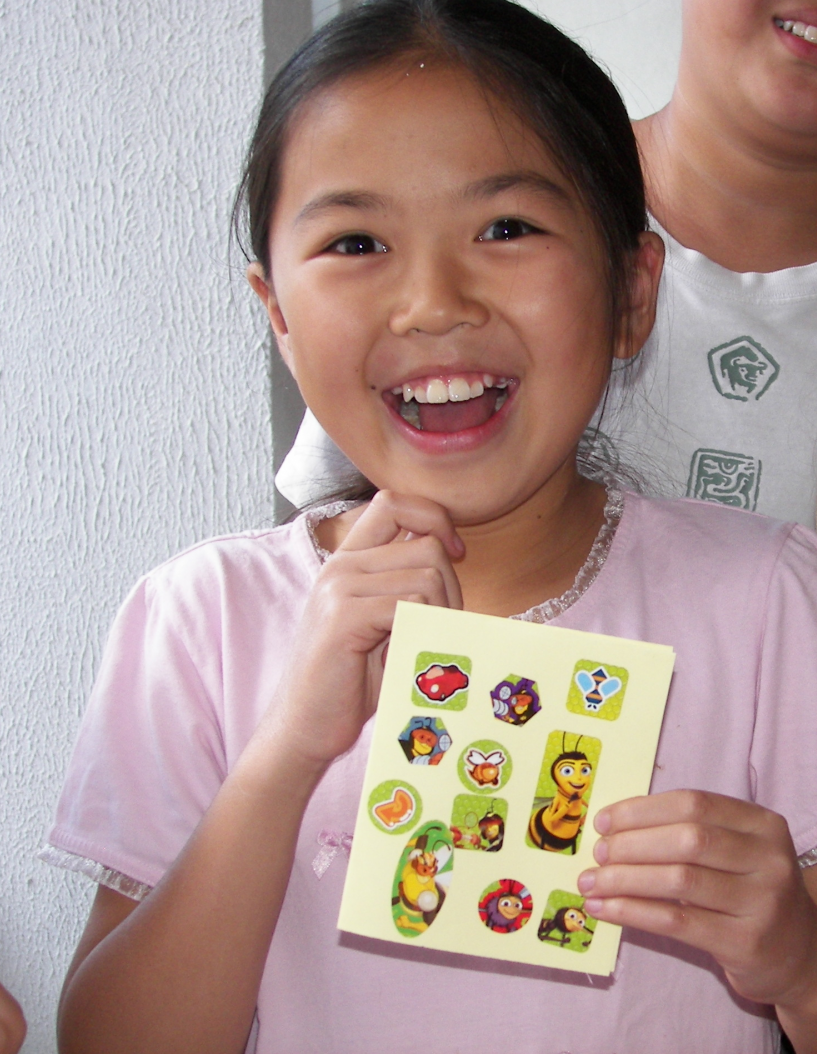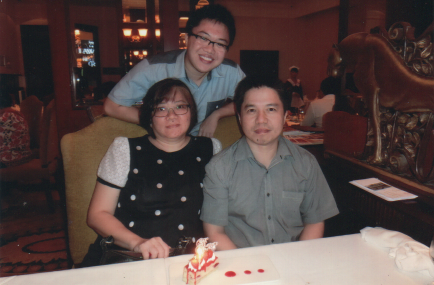“Make the Gospel part of your life, and your life part of the Gospel”: How one family learnt to be a witness in everyday life
by Gracia Lee // January 3, 2022, 11:03 am

Dr Richard Hui and his family during their first trip to East Africa. Despite suffering the loss of their daughter, Anna, the Huis have continued to persevere in their desire to share the Gospel. All photos courtesy of Dr Richard Hui.
After graduating from the NUS School of Medicine in 1990, Dr Richard Hui had the enviable option of forging a glamorous and lucrative career for himself.
However, he chose a path that would lead him to become a village doctor in an impoverished East African nation instead.
Mission work had long been on his heart since he accepted Christ as a teenager in Chinese High School (now Hwa Chong Institution) through the Navigators ministry.
The call grew stronger after he was accepted into medical school – a surprising admission given that his grades had not been the best in class.
“That set me thinking,” Dr Hui, now 55, told Salt&Light. “What would God use my medical degree for? He brought me in, so He’s got to use it somehow.”
Decade-long preparation
A year before he graduated, he met an English veteran worker from Operation Mobilisation (OM) who inspired him to think about using his professional skills to serve others in a foreign country.
“What would God use my medical degree for? He brought me in, so He’s got to use it somehow.”
In 1994, he married Chua Chiew Lian, who had been in the same Navigators ministry and shared his burden for ministry. Together, they researched potential countries to which they could go, before settling on one in East Africa.
But it would take a whole decade of preparation, during which the couple had two children, before they finally felt at peace to go.
During this time, Dr Hui enrolled in part-time theological studies at the Biblical Graduate School of Theology, as well as a postgraduate course in public health at the National University of Singapore. He also served as chair of his church’s missions committee.
Chua, now 55, who had been a youth worker at Singapore Youth For Christ, also quit her job to get used to life at home, as women in the country they were headed to were not expected to work. She started homeschooling their children after discovering there were no available schools in their country of service.

Dr Hui and his wife, Chiew Lian, in 2019.
In January 2001, the couple decided to take their children, then four and six, for a survey trip to explore work and ministry opportunities.
“Don’t come. It’s not safe,” she told them. The clinic and church they were planning to visit had just been bombed.
But just hours before their flight, they got a call from a Singaporean nurse who was working there. “Don’t come. It’s not safe,” she told them. The clinic and church they were planning to visit had just been bombed.
Nevertheless, after speaking with some of OM’s regional leaders, they decided to continue with their trip and explore other cities and ministries instead.
It turned out to be a divine diversion that helped them to see a bigger picture of what they could do in the country.
“We managed to explore three or four cities and also met with other organisations with a long presence of development work in the country. They had different philosophies, different strengths. Meeting them was never in the original itinerary. And it really opened our eyes to where God could possibly put us,” said Dr Hui.
And so in 2004, with peace in their hearts that this was where God was calling their family, the Huis packed their bags and left.
Raising healthcare standards
For the first two years, the couple focused on learning the local language and culture, which at times proved to be challenging. Yet they relished the slower pace of life and enjoyed the hospitality of the locals.
“It was so good because our kids adjusted very well. God had already thought of that before we thought of it.”
Recounting how God provided for their every need, Chua recalled how the first apartment they lived in looked just like a HDB flat, which was unusual for houses in the country.
“It was so good because our kids adjusted very well. God had already thought of that before we thought of it,” she said.
He also provided a job opportunity for Dr Hui, who became part of a seven-man health development team that scored a development contract with the local government to help boost the standard of healthcare in five rural villages.
As hospitals were not easily accessible and infant mortality rates were high, the team trained local girls how to deliver babies safely. Dr Hui also trained nurses in a basic healthcare course that would allow them to develop a more holistic perspective toward health.
On the education front, a high school science teacher in the team gave students health lessons and equipped teachers with posters, lesson plans and stories.
From time to time, they also embarked on infrastructure projects, such as bringing in basic health equipment and drilling a drinking well.
Building genuine friendships
Along the way, they forged friendships through day-to-day interactions with locals – a stranger on the bus, the man delivering gas canisters to their house, their language teachers.
Soon, they found themselves being invited to baby showers, weddings and friends’ homes, which were good opportunities to immerse themselves in the culture and deepen friendships.
However, due to religious intolerance in the area, they did not speak about their faith too overtly.
“Ministry is not about giving a tract or handing out Bibles, but meeting with them, getting to know them, sharing your stories, praying with them and, as God leads, sharing more,” said Dr Hui.
“You need to know how to make the Gospel part of your life, and your life part of the Gospel.”
Chua added that since they were not proficient in the language, they had to be more intentional about showing love to those around them through their actions.
Nevertheless, the couple was careful not to see their local friends merely as “objects of ministry”, said Dr Hui. Rather, they saw them as colleagues and friends whom they truly sought to connect with and understand.
“Ministry is not about handing out Bibles, but getting to know them, praying with them and, as God leads, sharing more.”
Said Chua: “Having a genuine concern and a genuine interest in people, listening to them, being interested to understand their culture and views is quite important, so you can have conversations that allow a mutual sharing of life and beliefs.
“We have to be respectful and accord dignity as well to the relationships that we’ve built, not just to meet our own ends.”
Their sincerity did not go unnoticed. Some of their friends became comfortable enough with them to have honest conversations about their faiths and beliefs.
Dr Hui recalls one particular nurse, a young man in his 20s, with whom he would chat over a meal every week or so when he was in the village.
When the man’s eight-month-old son passed away from a blood disorder, he reached out to Dr Hui, who came down to the hospital and sat with him in his grief. He also allowed Dr Hui to pray for him.
It was these opportunities, created slowly over time and with intentional effort, that had spurred the couple to want to stay for the long-term – eight years, at the very least.
A journey of being faithful
However, just four-and-a-half years in, they found themselves back in Singapore following the unexpected death of their younger child, 10-year-old Anna, who had suffered from sudden and severe breathing problems.

Anna was just 10 when she was called home to be with the Lord after suffering from sudden and severe breathing difficulties.
Their older son, Andre, also had to return for his secondary school education as Dr Hui and Chua felt ill-equipped to continue homeschooling him.
“If it had been possible to stay for a longer term, we would have preferred that. Four years is just scratching the surface,” said Chua.
“But I believe God is sovereign. His time for us, even though it was only four years, had its own influence and impact. We were part of the whole sowing and planting and watering process.”
“It’s more about your being rather than the doing. If it’s your being then you will be a witness wherever you are.”
Through their experience, the couple has learnt that missions is not a destination but a journey.
“We worked very hard to prepare to get to that one place. And you may think it’s the Promised Land,” said Dr Hui. “But like when God called Abraham, it’s a journey. It’s about walking with God, serving Him and being faithful servants.”
Rather than seeing missions as a specific destination, they have come to realise that “more than anything else, missions is just an opportunity for us to obey God, to listen to and walk with Him”, he added.
“God calls us to be missional no matter where we are,” Chua agreed. When they returned in 2008, she busied herself with taking care of the elderly members in her family.
“It may not fit into what we consider cross cultural missions, but now that I get older and older, my understanding of missions becomes broader and broader,” said Chua, who became the executive director of Habibi International in July 2021.
Habibi International champions relief and humanitarian work for refugees and internally displaced persons in difficult regions.
“It’s more about your being rather than the doing. If it’s your being then you will be a witness wherever you are.”

Dr Hui, Chua and their son, Andre, in 2012.
Dr Hui echoes this sentiment as he continues to live a mission-minded life here in Singapore.
As a senior family physician at Choa Chu Kang Polyclinic, where he was head from early 2013 to August 2020, he tries to encourage some of his Christian staff to meet regularly for prayer, he said.
“Sometimes when I meet selected patients who have a lot of burdens and emotional and spiritual needs, I offer to pray for them and get to know them,” he added.
He is also part of the Christian Medical and Dental Fellowship, where he mentors younger doctors and medical students who have an interest in missions.
From time to time he wonders when or where God will lead his family to next. “But if He says ‘stay put’ then we will stay put, and our non-believing family members and colleagues and neighbours will be our mission field,” he said.
Wherever God places him, all he hopes is to be found faithful in living his life for Christ. (Galatians 2:20)
“I don’t aspire to be anything. The fact that I’m still working in this capacity and involved with different people is God’s blessing. At the end of the day, if I have one epitaph, hopefully it is that I was a good and faithful servant.”
Will you live out God’s love to those who have never heard of Jesus? Explore opportunities here: www.sg.om.org
Follow OM Singapore on Instagram and Facebook.
IF YOU LIKED THIS STORY, READ:
“What kind of people are you?”: Despite being cheated, robbed and detained, their love never waned
We are an independent, non-profit organisation that relies on the generosity of our readers, such as yourself, to continue serving the kingdom. Every dollar donated goes directly back into our editorial coverage.
Would you consider partnering with us in our kingdom work by supporting us financially, either as a one-off donation, or a recurring pledge?
Support Salt&Light


